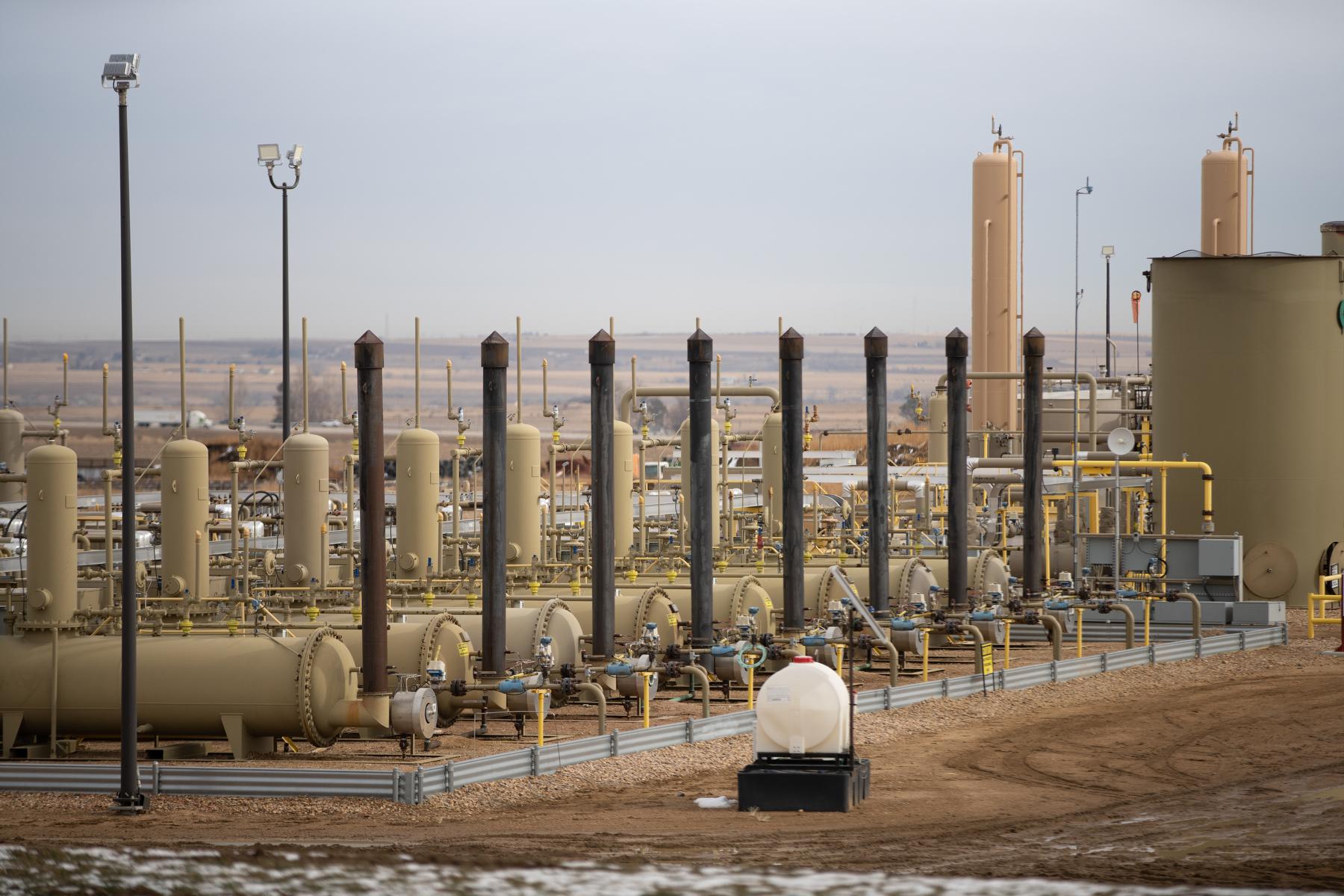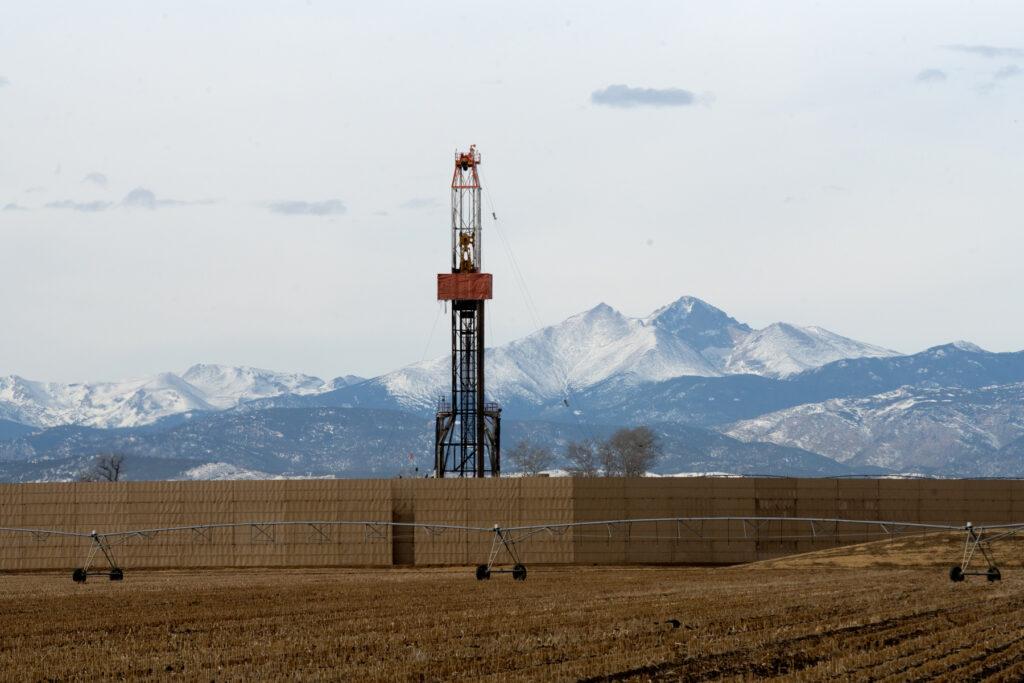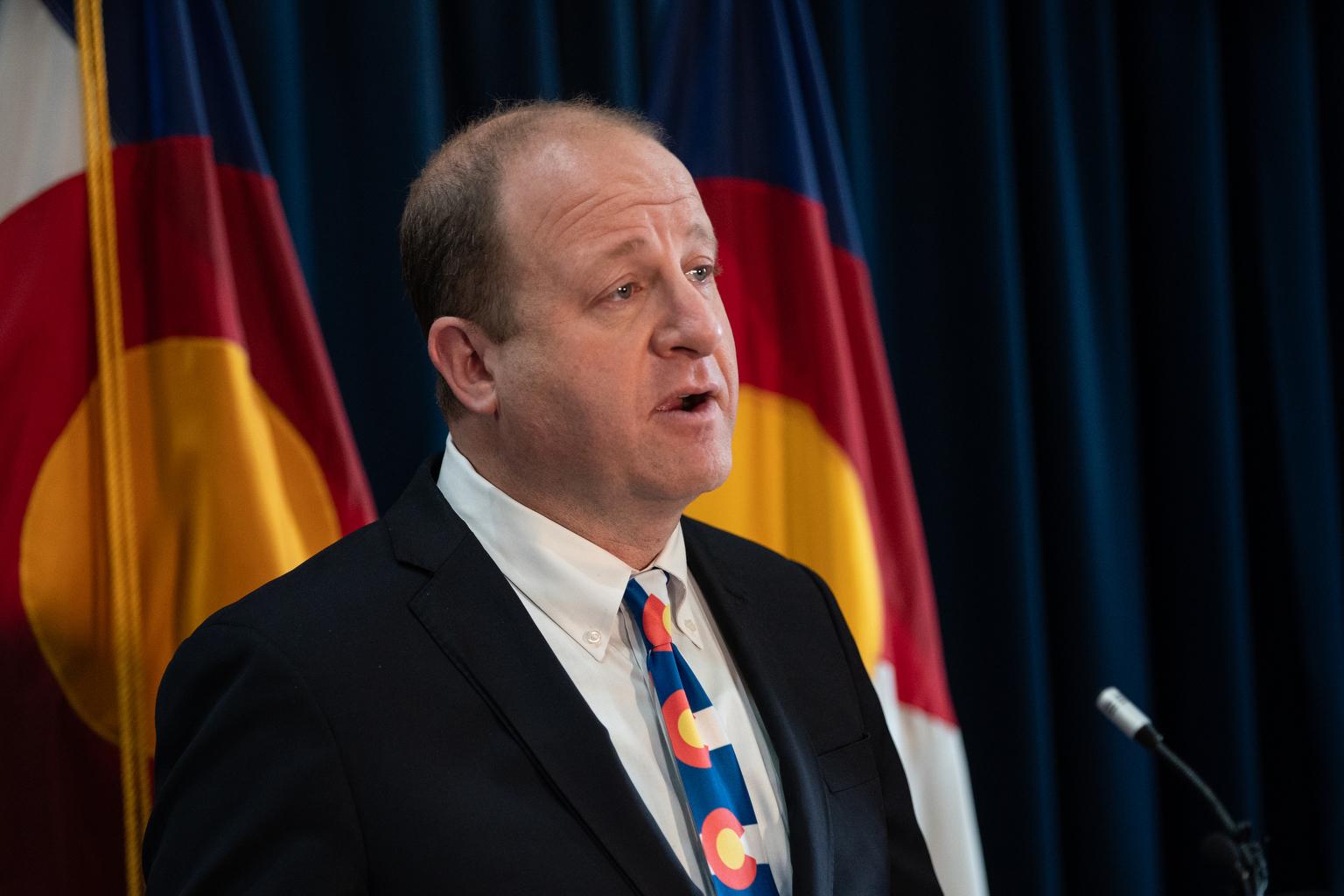
It appears Colorado’s reignited oil and gas wars could lead to a crowded and confusing cluster of competing initiatives on the November 2024 ballot.
A coalition of environmental groups filed a trio of potential new initiatives Thursday to increase pollution consequences and establish a state right to a healthy environment. Representatives say the ballot measures are necessary to safeguard recent climate progress from the state’s oil and gas industry, which has been pushing its own ballot initiatives related to environmental issues.
“We have no choice but to utilize every tool available to us,” said Jessica Goad, the assistant director of Conservation Colorado. “We are filing these measures as a backstop to ensure we can keep moving Colorado forward on the environment and public health.”
Representatives for groups backing the opposing slate of ballot measures did not immediately respond to CPR News’ request for comment.
Both environmentalists and oil and gas companies may see the initiatives as a game of political chicken.
Goad said the coalition — a political alliance that includes Conservation Colorado, the Sierra Club, GreenLatinos, Healthy Air and Water Colorado, the Natural Resource Defense Council, and the Southwest Energy Efficiency Project — is “very open” to discussing withdrawing its initiatives in exchange for a similar commitment from the oil and gas industry.
After initially filing its initiatives in the fall of 2023, leaders of groups representing drillers and other fossil fuel firms suggested their ballot measure blitz was a response to a separate proposal to ban new drilling permits after 2030. Another coalition of environmental groups withdrew that plan after lawmakers proposed similar legislation at the state Capitol, which is widely expected to fail in its first committee hearing later this month.
“If the industry filed their measures in response, our response would be: ‘OK, that one is expired, pull your measures down,’” Goad said. “But that doesn’t appear to be how they're operating right now.”
Spoiler ballot initiatives are a familiar tactic in the world of Colorado politics.
If a group plans to run a controversial ballot proposal, opponents often file countermeasures to raise the stakes.
The strategy is one way to offset the potential impact of any policy. In addition, it can help lay the groundwork for an agreement to drop ballot fights, like a deal Gov. Jared Polis struck almost four years ago to prevent oil and gas ballot measures in the 2020 and 2022 election cycles.
It’s now clear the truce has been officially called off. A lack of new agreement could confuse voters with a ballot packed with a complicated mix of proposals with broad potential state and local impacts. The current battle comes as the legislature is also considering a separate set of bills related to the oil and gas industry, including a package meant to reign in ozone pollution and a proposal to phase out new oil and gas permits by 2030.
The environmental coalition said its new ballot measures are a response to proposals from Protect Colorado, a political action group backed by the state’s largest oil and gas operators, and Advance Colorado, a conservative group that’s championed several tax relief measures.
The industry and its allies have proposed a ballot measure that would restrict the type of energy residents use for heating and cooking. Backers acknowledge the plan is meant to hinder a growing movement to ban fossil-fuel appliances in new buildings. According to state campaign finance records, Protect Colorado had invested more than $3 million as of last December to gather signatures and support the ballot initiative.

Another proposed initiative would require an equal split between registered Democrats, Republicans, and Independents on Colorado’s top air quality commission. The plan is currently awaiting approval from the state title board.
Other potential 2024 initiatives alarming environmental groups focus on revisions to Colorado’s overall ballot process. One proposal, for example, would ask voters to initiate a constitutional amendment requiring a supermajority if the legislature tries to modify future laws approved through a ballot initiative. Another would require an economic impact statement printed alongside all future ballot initiatives and a separate proposal would trigger a constitutional amendment process that requires the signature of two percent of all registered voters in each Senate district.
If approved, the environmental coalition warns the suite of ballot measures would mainly serve to protect the oil and gas industry’s profits, while invalidating many state and local environmental protections. Goad said their response is meant to ensure residents and regulation retain options to hold companies accountable for any environmental harm.
For its part, the environmental group has proposed a ballot initiative that would make the oil and gas industry “strictly liable” for spills, fires, or similar problems. If approved, it would lower the burden of proof for residents who sue companies for any harm to human health or property. To succeed, the plaintiffs would only need to show the incident occurred, not prove the underlying cause.
Another initiative filed by the coalition would allow residents to sue to uphold Colorado oil and gas regulations in state court and, if successful, require the violating company to pay any of the plaintiff’s attorney fees. A third initiative would establish a right to clean air, clean water, and a healthy environment under state law.
Both the oil and gas industry, its allies, and the environmental coalition face some of the same practical hurdles to getting their proposals on the November 2024 ballot. All statutory initiatives require 124,238 valid signatures submitted by Aug. 4.
- A lobbying frenzy builds around air pollution legislation focused on reducing summer smog
- To improve Colorado air quality, state Democrats propose overhaul targeting pollution from Suncor, oil and gas
- Colorado is set to consider a ‘fossil fuel phase-out.’ Here’s why that’s a big deal
- Why a new air quality bill is the latest in rift between Gov. Polis and environmental justice groups









